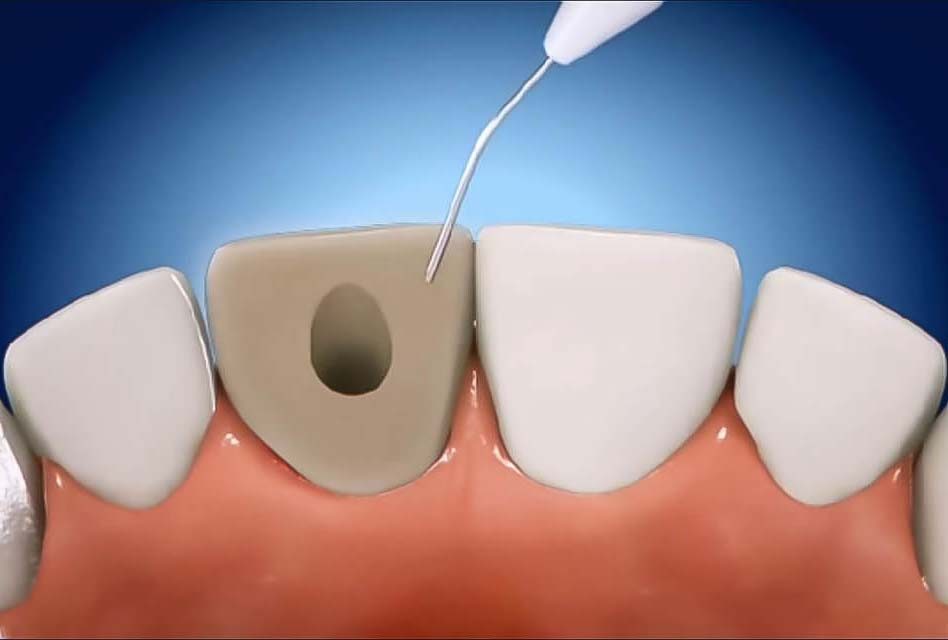Our Endodontic Services
We will explain everything you need to know in plain language you can understand.
What is Endodontics?
Endodontics is the branch of dentistry that is focused on saving natural teeth. The group of people who specialize in endodontics are endodontists. The term comes from the Greek words “endo” meaning inside and “odont” meaning tooth. Therefore, an endodontist is someone who diagnoses and treats the inside of the tooth. The outer layers of the tooth are made up of mineralized tissue which is similar to bone. These layers are called enamel and dentin. The innermost layer is the pulp, and this is where your nerves, blood vessels and connective tissue are found. All dentists are trained in endodontics, however, some teeth can be especially difficult to diagnose or treat. For this reason, many dentists choose to refer their patients to an endodontist.
Root Canals
Root canal therapy is necessary when the pulp becomes inflamed or infected. The inflammation or infection can have a variety of causes: deep decay due to bacteria, multiple dental procedures on the tooth, or a crack in the tooth. In addition, trauma to a tooth may cause pulp damage even if the tooth has no visible chips or cracks. If pulp inflammation or infection is left untreated, it can cause pain, and/or lead to an abscess.
Signs of pulp damage may include pain, prolonged sensitivity to heat or cold, discoloration of the tooth, and swelling and tenderness in the nearby gums. Sometimes there are no symptoms at all.
Endodontic Retreatment
Occasionally a tooth that has undergone endodontic treatment fails to heal or pain continues despite therapy. Although rare, sometimes a tooth initially responds to root canal therapy but becomes painful or diseased months or years later. A tooth may not heal as expected following initial treatment for a variety of reasons.
Whenever possible, it is best to save your natural tooth. Retreated teeth can function well for years, even for a lifetime. Your endodontist may be able to resolve your problem with retreatment.
Endodontic Surgery
Endodontic surgery can help save your tooth in a variety of situations.
Occasionally, canals are too calcified and narrow for the instruments used in nonsurgical root canal treatment to reach the end of the root. Endodontic surgery is then required to clean and seal the remainder of the canal.
When symptoms persist, endodontic surgery may be used as a diagnostic aid. Your tooth may have a tiny fracture or canal that could not be located during nonsurgical treatment. Endodontic surgery allows the entire root of your tooth to be examined allowing the problem to be located and the correct treatment provided.

Dental Trauma
People of all ages can traumatically injure a tooth but most traumatic dental injuries occur in children. Injuries may result from bad falls, participating in sports, bike or car accidents, etc. The severity and type of injury will determine the necessary treatment.
There are a number of common injuries that can happen to teeth. Many of them affect the inner soft tissues of the tooth, known as the dental pulp. When the pulp becomes injured or inflamed, root canal treatment may be needed.
Cracked Teeth
With advanced technology, dentists are helping people retain their teeth longer. Because people are living longer and more stressful lives, habits such as clenching, grinding, and chewing on ice or other hard objects lead to more cracks in teeth.
The cracked tooth presents with a variety of symptoms, which can include erratic pain when chewing, pain on release of biting, or pain when your tooth is exposed to extreme temperatures. The pain may come and go and there may be difficulty in locating which tooth is causing the discomfort.
The treatment and outcome for your cracked tooth depends upon the type, location and extent of the crack.

Internal Bleaching
Internal Bleaching (intracoronal bleaching) is a technique used to whiten the appearance of teeth and is different than over-the-counter solutions used to whiten teeth (extracoronal bleaching). Internal bleaching must be conducted by your dentist and can only be performed after successful root canal therapy.
Not everyone is a candidate for internal bleaching and one of our doctors will evaluate your case on an individual basis.
Professional teeth whitening and internal bleaching are two different procedures, but they are meant to achieve the same result. This result is none other than to make the teeth appear whiter. However, these two processes differ widely from each other.
